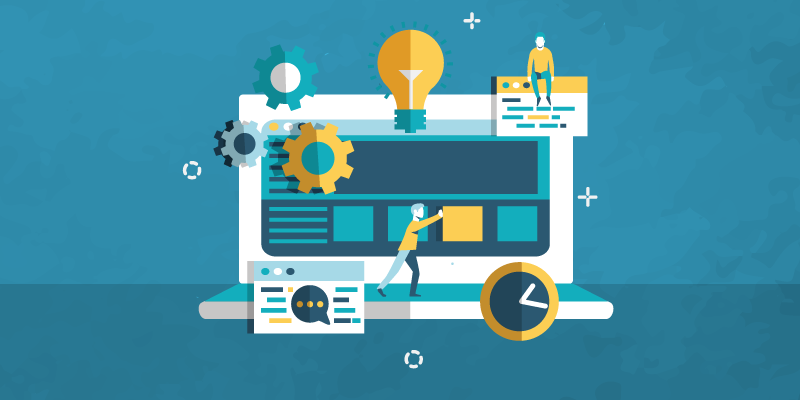What our reduced attention span is doing to our brains
Do you know that the human attention span is dipping? Our ability for analysis, critical thinking, imagination, and reflection has plummeted too. How do we overcome our addiction to our electronic screens? Here are a set of solutions on how to move from multi-tasking to single-tasking to improve our lives.
Deep in our biology, we have a desire to know what’s going around us. We want information which releases dopamine in our brains and encourages us to do something over and over again. It’s a form of addiction which existed when we moved from oral texts to books and from radio to television. Therefore, more than the dangers of the internet, it shows the feebleness of our own attention spans. However, in recent years, the change has been unprecedented. We’ve created a digital environment—dependent on the internet—where few of us are searching or actively seeking information, it’s effortlessly coming to us at full blast.
Nicholas Carr, an American writer on technology, discussed a 2008 study in his book, “The Shallows: What the Internet Is Doing to Our Brains,” which reviewed 34 million academic articles published between 1945 and 2005 and found that scholars were citing fewer previous articles and focussing more heavily on recent publications. What this shows is that despite the digitization of journals which has made it far easier to find information, we are all reading the same thing.
The second, more pertinent and widely-discussed, question is how much time are we spending reading on the internet and what is it doing to our brains?
Are you always distracted?

Distractions can lead to a dip in mental focus
It is popularly believed that the human attention span has markedly dipped in the last 15 years, reaching eight seconds from the former 12 seconds. While there is not enough evidence to prove that we can only concentrate for eight seconds, studies have proved that we’re constantly distracted, which in turn has led to a shrinking attention span. Consider some stats: we check our phones 2,617 times a day but even when we do, we don’t spend more than 10 seconds on a webpage.
Our distracted, constantly-connected lives are not helping our brains
In early 2009, Patricia Greenfield, American psychologist and professor noted after reviewing 40 studies on the effect of internet and media on intelligence and learning ability that "every medium develops some cognitive skills at the expense of others." This means that while our use of the internet has led to a "widespread and sophisticated development of visual-spatial skills,” it has come at a cost. We’re spending less time on ‘deep processing’ and have therefore weakened our ability for analysis, “critical thinking, imagination, and reflection”.
This superficial intake of information means that we’re not able to retain what we read or learn. Facts don’t enter our long-term memory which is crucial for us to process and use them to develop our own ideas.
Are you always multi-tasking?
Excessive access to screens has also made us prone to multi-tasking.
Numerous studies show that we assume we multitask; in reality, we switch from one task to another which impedes our ability to work well. There’s a simple experiment to show that multitasking doesn’t work: Try performing two different tasks using your two hands and the impossibility will prove how difficult it is for the brain to concentrate on two things at the same time. Yet we allow emails, notifications and whatsapp messages to keep interrupting our work.
Professor Carr quotes another study which shows its impact on our brain: Researchers at Stanford gave cognitive tests to a group of heavy media multitaskers as well as to a group of relatively light ones. “They discovered that the heavy multitaskers were much more easily distracted, had significantly less control over their working memory, and were generally much less able to concentrate on a task.”
Thus, our smartphone’s more engrossing but less useful features are sacrificing our concentration, focus, and attention.
Bring focus back into your life
So what can we do about this?
For starters, read don’t skim
There’s a new norm in reading which is ‘skimming’ or spotting certain words and moving on to the next. Professor Maryanne Wolf of UCLA argues that “When the reading brain skims like this, it reduces time allocated to deep reading processes” or “to grasp complexity”. Thankfully, we know that the human brain is highly plastic and can add neurons and synapses.
Therefore, it’s not impossible to change habits and we must learn to not only read with concentration, and thoroughly check and analyse what we’re reading, but also reject information that is irrelevant. There’s no merit in doggedly consuming everything available on the internet.
Block Out Distractions
If you spend all your time on computers and often give in to the desire to check social media, employ self-control to stop and if that doesn’t work, use one feature of the internet to cut another. Try the numerous extensions on chrome such as News Feed Eradicator or StayFocusd let you concentrate by blocking feeds and websites on certain times of the day. And when it comes to your phone? Two words: airplane mode.
Don’t Multi-task
The perception of ‘busyness’ makes multi-taskers believe they’re working well, when in fact, they are alternating between numerous tasks at the cost of effectiveness of each.
Try this simple exercise to get started: Replace multi-tasking with single-tasking by using your phone to put a five minute alarm at the beginning of each task. Use those five minutes to let that task completely engross you.
Chances are you will learn how quickly you can accomplish a task if you make use of your clear, distraction-free mind and develop it into a habit to work and live well.






